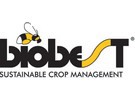"Weekly, we produce more predatory mites here than there are stars in our galaxy." That was what Jan Schoovaerts, Business Development Director IPM & Pollination at Biobest, said yesterday at the opening of the new predatory mite production facility in Westerlo, Belgium, attended by, among others, Deputy Prime Minister David Clarinval and Minister of Agriculture Jo Brouns. On this occasion, the company unveiled the new group name BioFirst and announced ambitious growth objectives. At the same time, attention was also drawn to the challenges facing the European agricultural and horticultural sector.

Investments
From the canteen of the new predatory mite facility, you can still see small greenhouses similar to those that were previously located at this site, but inside the production facility, you have more of a feeling of being in a futuristic laboratory. Except for yesterday, because everything was festively decorated for the opening of the new facility. Employees and guests could see how the 4,000 square meter hall is being furnished with recycled materials and stylish design to provide a clean, efficient, and pleasant working environment for approximately 50 employees. In the climate cells, which are supplied with fossil-free energy, predatory mites such as Amblyseius swirskii will now be produced, used in crops worldwide as a predator of larvae and eggs of whiteflies and thrips, and one of Biobest's key products.
The investment amounts to 12 million euros. A huge sum of money, but not the only investment Biobest has made in recent years. The company is growing to half a billion in turnover, partly due to the acquisition of the Brazilian company Biotrop. "Our journey is characterized by growth and accelerated growth. We have never experienced a year in which our turnover declined," CEO Jean-Marc Vandoorne said. And that growth is not yet over. The company has set itself an ambitious goal: in ten years, it wants to be among the top 10 crop protection companies in the world, a list currently dominated by chemical companies. To achieve this, the company has adjusted its organizational structure accordingly, and the holding company will now operate under the name BioFirst, while Biobest, BioTrop, BioWorks, and PlantProducts will remain as brand names.
 CEO Jean-Marc Vandoorne unveils the new group name BioFirst
CEO Jean-Marc Vandoorne unveils the new group name BioFirst
Rapid expansion
Biobest, or BioFirst from now on, has a relatively short but impressive history. The company was founded in 1987 as a producer of bumblebees and expanded its range over the years with biological crop protection agents. After being acquired by Belgian investors in 2006, it skyrocketed even further after an additional investment round in 2018, with several acquisitions and further investments involving international players such as Arugga, Ecoation, and the aforementioned brands. Last year, an additional 98.5 million euros in growth capital was raised.
The fact that Biobest's growth mainly occurs outside Europe can be seen in the numbers: 10 years ago, 80 percent of turnover was generated in Europe, but now it's only 20 percent. "We have solutions to many problems that growers face available, and they are already being used in many countries," said Jean-Marc, referring to the rapid growth of the Brazilian company Biotrop, which was founded just six years ago and now has a turnover of 120 million euros, partly due to changing Brazilian laws. "Then the market for biological crop protection grew by 40% per year."
In Europe, the growth is much slower, partly due to European legislation. "In Brazil, a biological control agent can be approved within a year, here it takes at least ten years," outlined Gaetan Wacquez of Floridienne, the holding and investment company of which BioFirst is a part. "Biological crop protection is part of the future. Countries like Brazil and the US have responded to this. Let's hope the same happens here."
 David Clarinval
David Clarinval
Biopesticides approval
Deputy Prime Minister David Clarinval also reflected on this. "Our farmers and growers need effective crop protection agents to ensure a stable food supply and improve their incomes. Biopesticides are part of this solution, and innovative companies like Biobest contribute to it." He mentioned that there are currently more than 150 products approved in Belgium, compared to only 2 in 2007. "For the federal government, accelerating the approval of biopesticides is a priority."
He explained that this doesn't happen quickly because these products are also extensively tested. Moreover, there are still challenges at the European level. Last year, the Sustainable Use Regulation, aimed at halving the use of pesticides by 2030, was voted down in the European Parliament, after which the SUR was entirely withdrawn this year. "As a result, there has been no progress so far in the implementation of biological crop protectors." Nevertheless, he emphasized that the Belgian delegation continues to work on this. "I am convinced that our work will lay the foundation for the next Commission." A first step in this will be next week, when he, as chairman of the European AgriFish Council, will introduce his European colleagues to Biobest's solutions. "I am sure they will be just as impressed as I am."
Whether they will receive as impressive a tour as the guests did yesterday, however, remains doubtful. Touring Biobest is unique because the production of biological controllers is a precise and extremely clean job, so the doors are usually closed. Only on the occasion of the opening were the climate chambers shown where the mite production will take place. Over the coming months, the hall will be further filled with these climate chambers and various secret and patented breeding methods, and then the door will be locked, and only employees will be able to enter the space after thorough cleaning.
Click here for the photo report.

